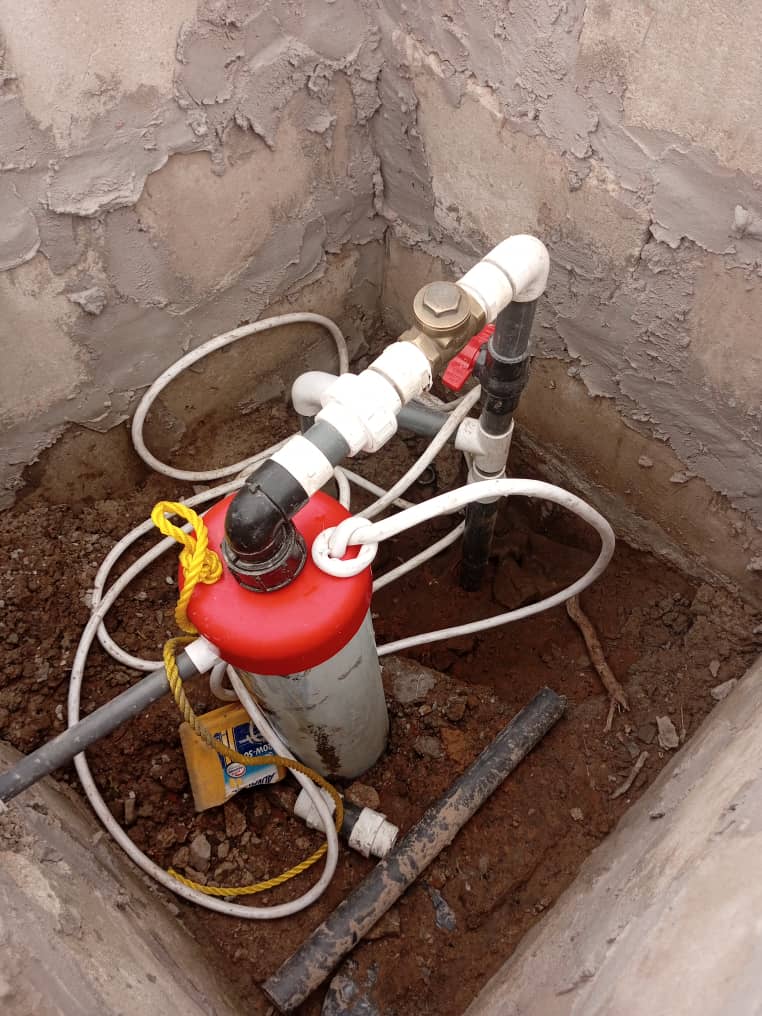The farming community of Bonsu, nestled within the Nkoranza South Municipality of Ghana’s Bono East region, is witnessing a transformative shift in its access to a fundamental necessity: clean water. This remarkable progress is not the result of external intervention, but rather a testament to the power of community-led initiatives, fueled by the Facilitated Collective Action Process (FCAP) and supported by a microgrant from Advocates for Community Alternatives (ACA). For too long, the residents of Bonsu, particularly those in newly developed areas, endured the arduous daily trek to distant water sources, be it a nearby stream or the mechanized boreholes of a fortunate few. This burden disproportionately affected women and children, who often bore the physical strain of transporting heavy jerrycans of water over considerable distances, impacting their health and well-being.
The tide began to turn in October 2024, when the community of Bonsu embarked on a collaborative endeavor to extend pipe-borne water directly to households. This initiative, bolstered by a GHS 120,000.00 microgrant from ACA, signifies a bold step towards improving public health and elevating the quality of life for residents. The impact has been swift and significant: 75 out of approximately 307 households are now connected to the water system, with the majority of remaining households actively pursuing connection. The community’s ambitious goal is to provide pipe-borne water access to at least 87 households, representing 40% of the total, within the next year. This achievement promises to alleviate the arduous task of water collection, ensuring a safer and more convenient water supply for the community.
The Bonsu water project is not solely focused on immediate access; it also prioritizes long-term financial sustainability. This is achieved through a simple yet effective mechanism: each household seeking a water connection contributes GHS 200.00 to the “Oman yie die” Committee. This creates a local fund, a resource pool that the community can utilize to address other development priorities identified during the visioning and goal-setting phases of the FCAP process. This innovative approach fosters a sense of ownership and shared responsibility, ensuring the project’s benefits extend beyond immediate water access to encompass broader community development goals.
The project’s success has sparked enthusiasm and pride among stakeholders. Mr. Ameyaw Franklin, Technical Advisor from the Nkoranza South Municipal Assembly, lauded the project’s focus on efficient water usage and its potential for generating income for future development initiatives. He emphasized the importance of responsible water management and the community’s ability to reinvest the collected funds into further improvements. Ms. Juliet Fosuaa, the Community-Based Facilitator, expressed immense pride in the community’s achievements, attributing the success to the FCAP methodology provided by ACA. She highlighted the empowering nature of the FCAP process, which equipped her with the skills to guide the community in developing a shared vision and translating that vision into tangible progress.
The Bonsu water extension project serves as a powerful example of community-led development in action. It demonstrates how local voices, coupled with strong leadership and a shared sense of responsibility, can catalyze lasting positive change. The FCAP methodology, employed by ACA, empowers communities to identify their own needs and develop solutions that are tailored to their specific context. This approach fosters a sense of ownership and ensures the sustainability of development initiatives.
Advocates for Community Alternatives, the NGO facilitating this transformative process in Ghana, is deeply invested in seeing communities take charge of their own development trajectories. They advocate for the wider adoption of the FCAP methodology by government and other social actors, believing that this community-driven approach is essential for effective and sustainable community planning and development. The success in Bonsu serves as a compelling case study, demonstrating the potential of FCAP to empower communities and bring about meaningful change from within. It reinforces the vital role of local agency in achieving development goals and highlights the power of collective action in transforming lives and building a more sustainable future.


